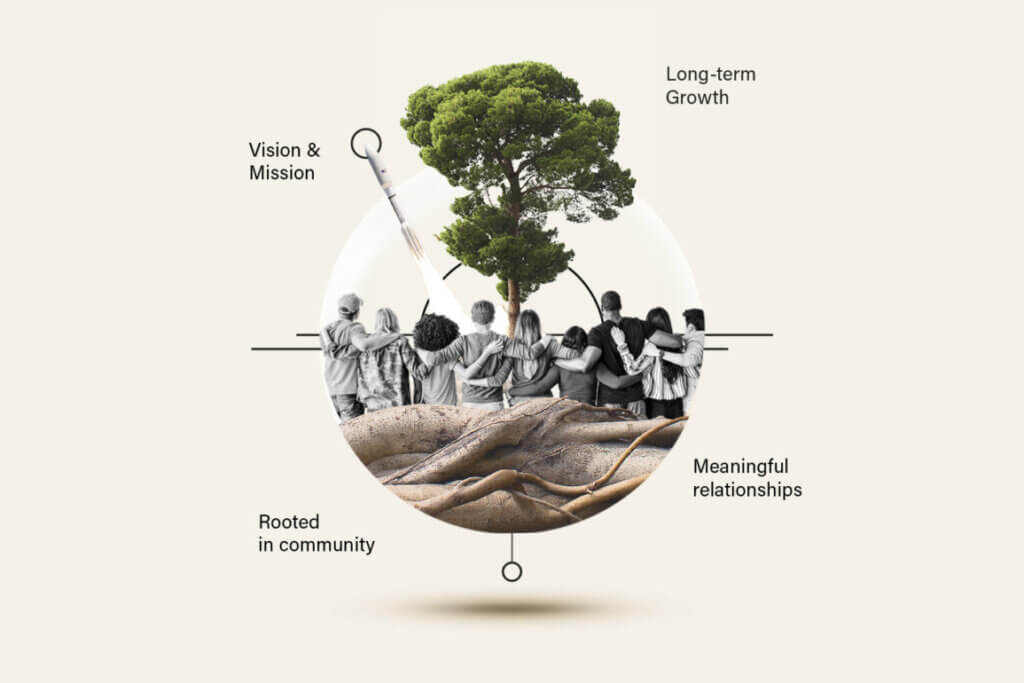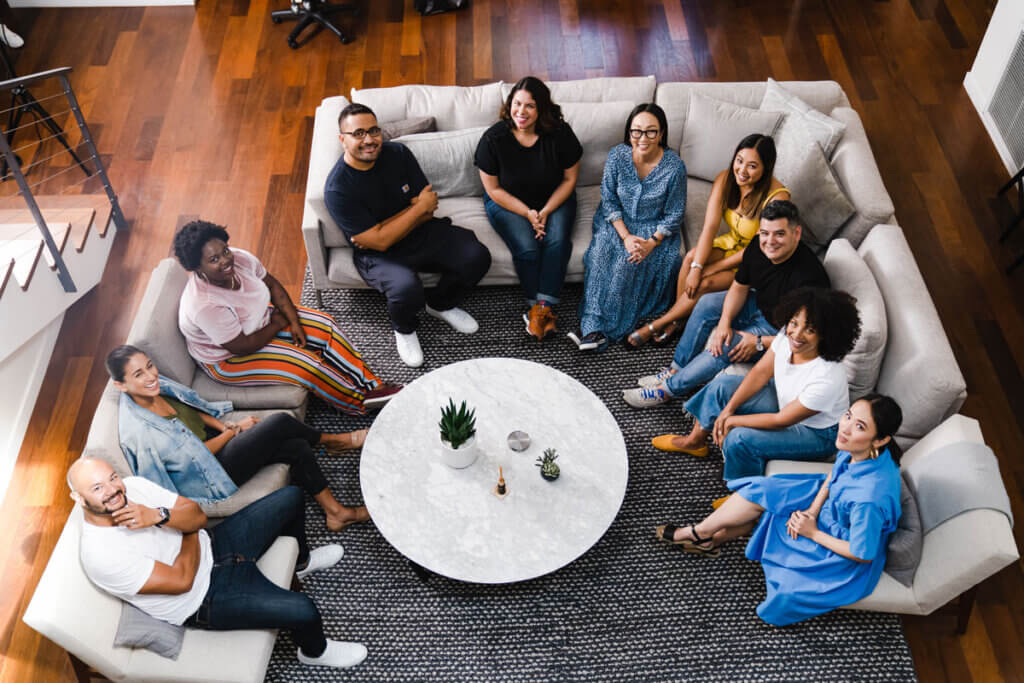The Guide to Purpose-driven Certifications for Your Equality-Focused Businesses

If your mission involves traditionally marginalized groups, certification can be a major boost.
just what is social equality? It means that people within a specific society or isolated group have the same status in all respects, including civil rights, freedom of speech, property rights, and equal access to social goods and social services. But it also includes health equality, economic equality and equal opportunities.
Social equality means there are no legally enforced social class boundaries and no discrimination motivated by an inherent part of a person’s identity, such as sex, gender, race, age, sexual orientation, origin, class, income or property, language, religion, convictions, opinions, health, or disability.
Equal opportunity means being judged by ability rather than on any of the above inherent traits.
What does this mean to your business?
If your business mission is social equality, focus on minority, othered and disadvantaged or traditionally marginalized groups for both your customer base and your employees.
Start a Woman-Owned Business
Women increasingly are becoming a driving force in business. In 2014, research from American Express showed that women were launching 1,200 businesses a day!
- More than 11.6 million firms are owned by women, employing nearly 9 million people and generating $1.7 trillion in sales as of 2017.
- Women-owned firms (51% or more) account for 39% of all privately held firms and contribute 8% of employment and 4.2% of revenues.
- Women of color in the U.S. majority-own 5.4 million firms.
- These firms employ 2.1 million people and generate $361 billion in revenues annually.
- One in five firms with revenue of $1 million or more is woman owned.
- More than 4% of all women-owned firms have revenues of 1 million or more.
And women care about buying from other women. A consumer survey by Walmart showed that 90% of female customers are willing to go out of their way to buy a product from a woman-owned business.
The United Nations has an entire booklet on “Women’s Empowerment Principles: Equality Means Business” as a guide to “empowering women to participate fully in economic life across all economic sectors and throughout all levels of economic activity.”And in the United States, the Small Business Administration (SBA) offers a number of programs to level the playing field, entrepreneurship programs and funding. It also has its own certification program.
The U.S. Chamber of Commerce Foundation says women-owned businesses account for 30% of new businesses but face many issues, including funding and mentorship. But there are organizations that can help:
- The National Association of Women Business Owners builds strategic alliances, coalitions and affiliations to transform public policy and influence opinion makers.
- The National Women’s Business Council advises on issues of impact and importance to women entrepreneurs and business owners via data, engagement and news.
- The Women’s Business Enterprise Council (WBENC) is the largest certifier of women-owned businesses in the U.S. and a leading advocate for women business owners and entrepreneurs. The WBENC certification is accepted by more than 1,000 corporations. It is an approved third-party certifier for the SBA.
Certification isn’t easy, but can be worth it
Why is certification important? WBENC certification validates that the business is 51% owned, controlled, operated and managed by a woman or women. Certification gives women-owned businesses the ability to compete for real-time business opportunities provided by WBENC corporate members and government agencies.
It also has a program to connect women-owned businesses with major corporations to facilitate business opportunities. It provides resources and fosters engagement through advisory councils, ambassadors and recognition awards programs.
The SBA also offers a certification program called Women-Owned Small Business (WOSB). Small businesses submitting an offer on a solicitation that’s been set aside for WOSBs must complete this or WBENC certification prior to submitting the offer.
Certification gives many opportunities for growth, including:
- Appealing to new clients: Many businesses seek out women-owned businesses as partners, so certification can mean a whole new revenue stream.One reason that women-owned businesses are appealing as partners: the federal government historically has offered tax incentives to companies that work with women-owned businesses, and some states do, too.
- Attracting prospective employees: Finding talented, dedicated employees can be challenging for any company. Gaining certification as a woman-owned business helps build credibility and helps attract those who are interested in working for a female entrepreneur.
- Accessing new markets: Not only does certification attract new clients, but it also opens up new sectors of work for small businesses. The SBA’s WOSB program goal is to expand opportunities for women-owned businesses to compete for contracts, especially in industries where WOSBs are significantly underrepresented.
Start a Minority-Owned Business
Over the last 10 years, minority business enterprises accounted for more than 50% of the two million new businesses started in the United States and have created 4.7 million jobs. There are now more than four million minority-owned companies in the United States, with annual sales totaling close to $700 billion.
Good news, but though minorities make up 32% of our population, minority business ownership represents only 18% of the population.
This means there’s plenty of room for growth.
First of all, what is defined as a minority-owned business in the United States?
- Minority businesses must be at least 51% minority-owned, operated and controlled. In a publicly owned business, at least 51% of the stock is owned by one or more minority group members.
- A minority group member is an individual who is at least 25%:
- Asian.
- Black.
- Hispanic.
- Indigenous American. Please note that government agencies refer to Indigenous Americans as “Native Americans.”
- Must be a profit enterprise and physically located in the U. S. or its trust territories.
- Management and daily operations must be exercised by the minority ownership member(s).
Corporations, the federal government and state agencies all want to do business with minority-owned companies.
This is because contracting with minority-owned businesses is important to customers: “Corporate America understands that you cannot expect minorities to buy things when you haven’t done business with minorities,” says Steven Sims, the vice president of the National Minority Supplier Development Council.
Second, it’s responsible: “It’s important because we have an obligation in government to ensure that all firms in our state have an opportunity to participate in contracts that are paid for with tax dollars,” says Luwanda Jenkins, the special secretary of minority affairs for Maryland.
Getting certified
Governments and firms look for minority-owned suppliers through programs that have formal certification processes. If you’re not certified, you can miss out on a lot of opportunities.
The National Minority Supplier Development Council (NMSDC) offers a Minority Business Executive (MBE) certification. The NMSDC is the only national organization providing certification throughout the U.S. where MBEs are genuinely minority owned and operated and ready to do business. Certification comes with a number of benefits:
- Educational programs: These include a wide range of networking opportunities.
- Access: This means MBEs doing business with MBEs and forming joint ventures for success.
- Business opportunity fairs: These allow minority entrepreneurs to present themselves to hundreds of prospective buyers in a single setting.
- Customized executive education: This concentrates training and technical assistance into leadership tools for CEOs of minority-owned firms.
- Networking opportunities: This provides expansion of relationship-building opportunities with corporate buyers.
In addition, NMSDC offers a variety of other formal and informal activities to foster the development of long-term, mutually beneficial business relations by bringing corporate purchasing people together with representatives of minority businesses.
NMSDC has 23 regional affiliate councils, so current or aspiring minority business owners can find one near them.
Small Business Administration Certification
The SBA offers the 8a Business Development Program for small, disadvantaged businesses, offering a broad scope of assistance to firms that are owned and controlled at least 51% by socially and economically disadvantaged individuals. These also are called a small disadvantaged business (SDB). Is the name problematic? Of course it is, but we’ll focus on what it can do for you.
Disadvantaged businesses in the 8(a) program can:
- Compete for set-aside and sole-source contracts in the program.
- Get a business opportunity specialist to help navigate federal contracting.
- Form joint ventures with established businesses through the SBA’s mentor-protégé program.
- Receive management and technical assistance, including business training, counseling, marketing assistance and high-level executive development.
The federal government fully defines who qualifies for the 8(a) program in Title 13, Part 124 of the Code of Federal Regulations (CFR). You also can get a preliminary assessment of whether you qualify at the SBA’s Certify website.
To qualify for the 8(a) program, follow this eligibility checklist:
- Be a small business. You can use this tool to find out if yours is indeed a small business.
- Not already have participated in the 8(a) program.
- Be at least 51% owned and controlled by U.S. citizens who are economically and socially disadvantaged.
- Be owned by someone whose personal net worth is $250,000 or less.
- Be owned by someone whose average adjusted gross income for three years is $250,000 or less.
- Be owned by someone with $4 million or less in assets.
- Have the owner manage day-to-day operations and also make long-term decisions.
- Have all its principals demonstrate good character.
- Show potential for success and be able to perform successfully on contracts.
If you qualify, the first step is to register with the System for Awards Management (SAM).
Funding programs
Minority businesses have access to a number of government funding sources.
- Local assistance is available through a number of SBA field offices across the country.
- The Minority Business Development Agency (MBDA) helps minority-owned firms seeking to penetrate new markets and to grow in size and scale.Whether it’s securing capital, competing for a contract, identifying a strategic partner or becoming export ready, you can get help at an MBDA service center. The centers are located in areas with the largest concentration of minority populations and the largest number of minority businesses.
Immigrant-Owned Business
Immigrant entrepreneurs make a significant impact in America, often overcoming obstacles and setbacks to build businesses that contribute trillions of dollars to the national economy each year.
About 3.2 million immigrants ran their own businesses in the U.S. in 2017, according to the most recent data from the bipartisan research organization New American Economy.
Immigrants represent one in five entrepreneurs in America, generated $1.3 trillion in total sales and employed eight million. The New American Economy found that 45% of this year’s Fortune 500 companies were founded by immigrants or their children.
But immigrants, who comprise nearly 14% of the U.S. population, have to jump hurdles not faced by other business owners.
You must do these things to start a business as an immigrant
- Understand laws and regulations.
- Apply for a Social Security or Individual Taxpayer Identification Number:
A government-issued ID is required for several aspects of running a business. Any immigrant who is lawfully residing in the U.S. can request a Social Security card, either at the same time that they apply for a visa or after receiving it.If you do not have a Social Security number, you can apply for an Individual Taxpayer Identification Number from the IRS, which would be an acceptable form of ID to open a checking or savings account. Nonresidents can apply for an ITIN regardless of immigration status.You also can use an ITIN to apply for an Employer Identification Number, or EIN. An EIN would be necessary if you plan to hire employees as you would use the number to report employment taxes to the IRS.
- Open a business bank account: Entrepreneurs should open a business bank account to keep personal and business finances separate. Check in your community for a local bank or credit union that caters to immigrant business owners.
- Write a business plan: A business plan is a road map for your company and should detail each aspect of the operation from customer research to marketing plans. When applying for financing, expect to turn over your business plan to lenders, who will use it to gauge the potential success of your business.A basic business plan should include the following information:
- Summary of product or service and company mission statement
- Market analysis and industry outlook
- Description of your management team
- Marketing and sales strategy
- Financial projections
- Additional documents like resumes, business permits or credit histories
Why is a business plan essential? Presenting a business plan when you apply for financing makes you look professional as a business owner and could speed up the approval process. You also can use business plan software. There are many to choose from. The SBA also has templates for writing your business plan.
- Network with other immigrant business owners: This is a great way to find inspiration first hand and know what struggles you may face.
Indigenous American-Owned Business
Indigenous Americans face many of the challenges faced by immigrants, so a lot of the same information applies. Note that most government organizations refer to “Native American” rather than Indigenous American.
- Open a business bank account: Entrepreneurs should open a business bank account to keep personal and business finances separate. Check in your community for a local bank or credit union that caters to indigenous business owners.
- Write a business plan. A business plan is a road map for your company and should detail each aspect of the operation, from customer research to marketing plans. When applying for financing, expect to turn over your business plan to lenders, who will use it to gauge the potential success of your business. Some lenders will not accept a loan application without it.
A basic business plan should include the following information:
- Summary of product or service and company mission statement
- Market analysis and industry outlook
- Description of your management team
- Marketing and sales strategy
- Financial projections
- Additional documents like resumes, business permits or credit histories
Why is a business plan essential? Presenting a business plan when you apply for financing makes you look professional as a business owner and could speed up the approval process. You also can use business plan software. There are many to choose from. The SBA also has templates for writing your business plan.
There are also a number of helpful programs available for Alaska Natives and Native Hawaiians.
For purposes of government grants and funding eligibility, a Native American is an individual who has a certain percentage of Indian blood and is a member of a federally recognized tribe. There are currently 574 recognized tribes in the United States, and the criteria for who is or is not a candidate for tribe membership rests with each individual tribe.
However, to be considered Native American by the U.S. government, you must have 25% indigenous blood and be enrolled in a tribe or have a Certificate of Degree of Indian Blood (CDIB) issued by the Bureau of Indian Affairs.
SBA resources
The SBA’s Office of Native American Affairs (ONNA) has business growth and expansion tools for small businesses owned by Native Americans. ONAA engages in tribal consultations, produces promotional materials and participates in national economic development conferences.
American Indians, Alaska Natives and Native Hawaiians can use their local assistance tool to find nearby offices and resources. Because Native Americans are considered disadvantaged, you can get counseling on whether the 8(a) Business Development Program is right for you.
Check if you’re eligible for the 8(a) program in Title 13, Part 124 of the Code of Federal Regulations (CFR). You also can get a preliminary assessment of whether you qualify at the SBA’s certify website.
Reference the SBA’s resource guide for American Indians, Alaskan Natives and Native Hawaiians, or use the Native American Business Primer.
Just as it does with other minorities, the NMSDC also works with indigenous people to provide increased procurement and business opportunities.
Grants to start your business
While Native American small business owners can apply for various federal and state minority-owned business grants, there are also grants targeted specifically to Native American businesses through public and private agencies. Eligibility usually requires membership in a recognized tribe.
- First Nations Development Institute Grants: The First Nations Development Institute provides grants for economic development directly to tribes or Native American nonprofit organizations. It has a Native Asset-Building Partnership Coalition that offers early investment funds to contribute to the growth of Native American businesses.
- Rural Business Enterprise Grants: The United States Department of Agriculture’s Rural Business Enterprise grants (RBEG) provide funds to help support and grow Native American businesses and provide jobs. Applications for the RBEG grants must be made by officials of federally recognized tribes. Amounts awarded range from $10,000 to $500,000 without a cost-sharing requirement. Applications are accepted annually through a state or local RBEG office, and deadlines vary by state.
- The U.S. Department of Commerce provides a wide variety of grants for Native American job creation purposes. These grants are available to tribal governments, their members, and their businesses and companies that do business with Native Americans, whether or not these businesses are located on a reservation. Grants are available for economic development, tourism promotion and infrastructure projects.
- Administration for Native Americans: A subsidiary of the U.S. Department of Health and Human Services’ Office of Children and Families, the Administration for Native Americans (ANA) offers grant opportunities in several business-related areas like social and economic development, sustainable employment, and Native American asset building. Projects may be eligible for funding from one to five years, and these grants also include funding for technical help and training for project implementation.
Other helpful organizations
- American Indian Business Leaders (AIBL): The mission of AIBL is to increase the representation of American Indians and Alaska Natives in business and entrepreneurial ventures through education and leadership development opportunities.
- The Minority Business Development Agency offers information about available grant and loan programs as well as on loan packaging, private equity and venture capital sourcing. You can find a list of business centers here.
Start a LGBTQ+-Owned Business
According to the U.S. National Gay & Lesbian Chamber of Commerce (NGLCC), businesses owned by lesbian, gay, bisexual and transgender (LGBTQ) people are thriving, forming more than 1.4 million businesses operating today.
In 2015, LGBTQ consumer market alone was valued at over $900 billion.
Though LGBTQ-owned firms often are considered to be minority-owned businesses, their revenues are considerable. According to a 2016 report by NGLCC, certified LGBTQ+ businesses contributed over $1.15 billion to the U.S. economy.
The report estimated that figure to be about $2 trillion when taking into consideration all 1.4 million LGBTQ+ businesses in America, including non-certified. And “Fortune” writes that certified LGBTQ-owned businesses realize an average of $2.5 million in revenue a year, almost triple the average revenue of other small businesses.
Funding possibilities
To start a business and keep it growing, you need capital.
There are LGBTQ+-friendly lenders, of course, but everyqueer.com offers a great list of grants and loans available to LGBTQ+ entrepreneurs for different types of businesses. Just to name a few:
- Coca-Cola Foundation: This grant is great if you have a business idea that is focused on sustainability, which is the main mission of the Coca-Cola Foundation. It is dedicated to enhancing the sustainability of local communities worldwide and empowering underprivileged people.Throughout its fiscal year, the foundation gives away 1% of its operating income. Since it was formed, the foundation has given away over $1 billion, and in 2017, it gave away $138 million to over 70 communities worldwide. Find the application guidelines here.
- Small Business Administration LGBT Outreach: If you’re looking to network specifically with other LGBTQ businesses to get started with your own, SBA has a funding and resources page specifically for the LGBTQ community. The page just pays lip service to LGBTQ+ support, so you must email the network lgbt@sba.gov for details.It also offers the 8a Business Development Program for small disadvantaged businesses. The 8(a) program offers a broad scope of assistance to firms that are owned and controlled at least 51% by socially and economically disadvantaged individuals.Check if you’re eligible for the 8(a) program in Title 13, Part 124 of the Code of Federal Regulations (CFR). You also can get a preliminary assessment of whether you qualify at the SBA’s certify website.
- AngelList—LGBT Market: If you’re building an LGBT technology startup, try to get your company on the AngelList. It connects job seekers and investors to LGBTQ platforms with a mission to democratize the investment process and to help startups with their fundraising and talent challenges.You can raise capital and fill job positions for your quickly growing company. It even lets you raise the money free of charge. To join the platform and for more information, start here.
Get the training you need
The following organizations offer entrepreneurial training and development for LGBTQ+ business owners:
- National LGBT Chamber of Commerce (NGLCC) has affiliates all across the country, which makes NGLCC a great first stop for resources, training and meetups for the LGBT community throughout the United States.
- Echelon Magazine is a comprehensive resource for LGBT finance, economic development and workplace advocacy. It has especially strong information on corporate diversity, education and employment.
- Start Out is a nonprofit empowering LGBTQ+ entrepreneurs to drive community empowerment. It provides an excellent menu of options and programs. It has chapters in at least six cities and features business success stories on its site along with rare one-on-one mentorship.
You need certification
Remember that statistic? Certified LGBTQ-owned businesses realize an average of $2.5 million in revenue a year, almost triple the average revenue of other small businesses.
One of the most impactful benefits of certifying your business as minority owned, whether based on race, gender, sexual orientation, gender identity or otherwise, is that it gives your company the opportunity to advance in your industry with better access to the money corporations and government agencies set aside to diversify their vendor partners.
The NGLCC is the exclusive third-party certification body that verifies that eligible businesses are majority owned by LGBTQ individuals and grants Certified LGBT Business Enterprise (Certified LGBTBE) designation to these businesses as part of its LGBT Supplier Diversity Initiative.
By becoming a Certified LGBTBE, businesses are able to build relationships with America’s leading corporations, generate prospective business and clients, and collectively team with each other for contracting opportunities. It gives LGBTQ-owned businesses a competitive edge.
NGLCC has corporate partners who are looking to increase their spend with the LGBTQ business community. It holds business matchmaking and networking events, and certified companies are also eligible for scholarship programs, mentorship and leadership training, and other business development tools after one year.
It also has a Trans+ Inclusion Task Force with additional resources for trans or gender nonbinary business owners who want to get certified along with trans and nonbinary business connections.
The criteria for certification:
- Majority (at least 51%) owned, operated, managed and controlled by an LGBTQ+ person or persons who are either U.S. citizens or lawful permanent residents
- Exercises independence from any non-LGBTQ business enterprise
- Has its principal place of business (headquarters) in the United States
- Has been formed as a legal entity in the United States















